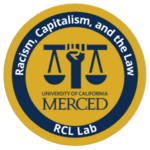Abstract
This article explores the precarious conditions deported Guatemalans encounter in their country of birth, alongside a consideration of how Guatemalan deportees’ agency is structured by precarity yet mediated by individual factors such as foreign-earned capital and negative credentials. Previous research has found that deportees are often criminalized, stigmatized, and blamed for social problems. Researchers have also found that deportees can be well-suited for work in the transnational call center sector when they have adequate English skills. This raises the question of how deportees’ individual characteristics and the local context of reception influence their (re)incorporation. This study, based on interviews with 34 Guatemalan deportees, reveals that deportees have varied trajectories, yet that the availability of call center jobs combined with deportees’ capacity and agency creates a bifurcation in labor market outcomes between deportees who secure jobs in call centers and those who do not.

